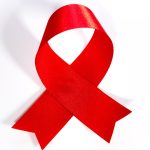
Depression
November 21, 2025
HIV/AIDS: Diagnosis and Treatment
November 30, 2025November evokes thoughts about food and nutrition. Here are topics to consider for November, the end of year holidays, or anytime.
Culinary Medicine: Blending the Science of Medicine and the Art of Cooking
- Define culinary medicine and recite background on the movement to improve health using food
- Identify the evidence for cooking in ways that are appropriate for chronic disease prevention and treatment
- Detail the importance of personal health behaviors in the care of your patients
- Deploy tips to use in counseling patients in making culturally-tailored dietary behavior changes that are sensitive to time and budget considerations
Food as Medicine: Broadening the definition of “Good Nutrition” to support the Mind and Body
- Evaluate the benefits of mind-body practices for personal wellbeing
- Integrate mind-body practices, including breathing and meditation, into patient counseling for preventive health, wellness and wellbeing
- Apply the benefits of nature therapy to emotional regulation and wellbeing of patients
Social Determinants of Health with Emphasis on Food Insecurity
- Identify and Screen for Food Insecurity and other SDOH
- Understand the Health Impacts of Food Insecurity and SDOH
- Provide informed referrals and resources to the patients
What’s New with Food Allergies? Prevalence, Prevention, and Treatments
- Utilize knowledge surrounding the public health impact of food allergies and disparities to better counsel patients with food allergies
- Practice identifying high and moderate-to-low risk infants to provide guideline-informed care for the prevention of food allergies
- Apply learnings from recent research to better adhere to prevention guidelines and explore treatment options to counsel families accordingly with accessible resources
Nutrition, Obesity and Bariatric Surgery
- Counsel overweight and obese patients in outpatient office setting through offering effective counseling along with options for medication and surgical options (if appropriate)
- Examine metabolic risk factors commonly seen in obese patients and appropriate monitoring of these comorbidities in the treatment of obesity
- Utilize established algorithms to optimize weight loss in combining diet, exercise, with medication and/or surgical options
Eat, Drink, Pray! Food-Borne Infections and Food Safety in the 21st Century
- Review common food-borne infections as well as selected outbreaks, which will underscore the changing domestic and global epidemiology of food-borne disease (diseases discussed will include E coli 157, Salmonella, Campylobacter, Listeria, among others)
- Review common food-borne toxins (Staph food poisoning, Clostridium perfringens, botulism, ciguatera fish poisoning)
- Review safe handling of food in the home, federal tracking systems for food-borne illness, and the current regulatory framework, including jurisdictions and responsibilities of the USDA and the FDA
- Review the growing appetite for special foods (for example, raw milk products, shellfish, and so-called “exotic” foods ) and the risks they potentially pose to higher-risk, 21st-century hosts (for example, immunocompromised patients, patients taking H2 blockers, and patients with unsuspected liver disease)
The Power of Diet for Treating Mental Illness
- Identify key dietary exposures that can worsen mental health
- Understand the brain mechanisms behind dietary effects
- Share three simple tips for healthier eating with their patients
- Name the micronutrients with the greatest influence on mental health
Nutrition and Aging
- List three consequences of malnutrition
- Name three or more micronutrients that are commonly low in the aging population
- Employ three or more nutritional and supplemental strategies to combat sarcopenia
The Role of Nutrition in Cancer Prevention
- Identify the impact of nutritional parameters on cancer risk
- Analyze mechanisms of nutritional impact on cancer risk
- Compare the impact of nutritional factors on GYN cancers vs. other cancers
Intermittent Fasting
- Evaluate aging, health span, and the biological pathways linked to the development of chronic diseases
- Integrate diet, nutrition, and lifestyle in healthy aging
- Compare the impact of fasting and fasting-mimicking diet on longevity, cellular regeneration, autophagy, metabolic profile, and reversal of autoimmunity
Mediterranean Diet: Health Implications and Clinical Updates
- Define the Mediterranean Diet and Mediterranean Food Pyramid
- Describe the bioactive compounds in the Mediterranean Diet and how it is different from other food plans
- Review the potential health benefits associated with the Mediterranean Diet
- Implement the Mediterranean Diet for your patients
Cardiovascular Health: Benefits of Wine, Chocolate, etc.
- Review and understand the data regarding: health benefits of red wine consumption
- Recognize why dark chocolate is considered “Superfood” also explore the effects of chocolate on blood pressure
- Explain the health benefits of dark chocolate consumption in regard to cardiovascular health
Food for Thought: The Psychology & Physiology of Eating & Hunger
- Evaluate strategies that incorporate both biological and psychological principles—such as mindful eating, behavioral interventions, and nutritional education—to support sustainable and healthful eating behaviors
- Understand the Physiological Mechanisms Regulating Hunger and Satiety
- Describe the roles of key hormones (e.g., ghrelin, leptin, insulin) and neural pathways (e.g., hypothalamic regulation, gut-brain axis) in appetite control and energy balance
- Analyze Psychological and Environmental Influences on Eating Behavior
- Identify how emotions, stress, cognitive cues, and social context contribute to eating patterns, food preferences, and disordered eating behaviors
- Apply Integrated Knowledge to Promote Healthy Eating Habits
- Evaluate strategies that incorporate both biological and psychological principles—such as mindful eating, behavioral interventions, and nutritional education—to support sustainable and healthful eating behaviors

info@speakersnetwork.com





